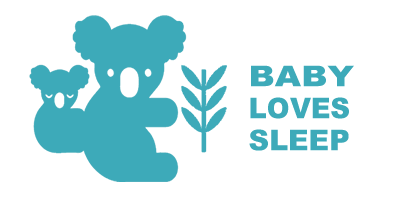Your Cart is Empty
$8 FLAT RATE SHIPPING USA | PAY IN 4 WITH SEZZLE
$8 FLAT RATE SHIPPING USA | PAY IN 4 WITH SEZZLE

How much sleep does your baby really need?
July 10, 2023 3 min read
Do you know if your little one is getting the sleep they need?
Here are some things to watch for:
- Mood
Your baby’s mood is the best indicator of whether they are getting enough sleep for their individual needs. Overtired babies are not happy babies! If your baby is happy, content and generally calm during their awake time then they are likely getting the sleep they need.
- Rhythm
Let your baby do their own thing for a couple of days, let them sleep as little or as much as they like, on their own. How much sleep are they having during the day and overnight? Are they happy or unhappy?
- Temperament - High sleep needs vs Low sleep needs
Your baby’s temperament can have a BIG role on their sleep needs. Easy going babies tend to fit in the average sleep needs range, whereas Slow to Warm and Sensitive babies can be on completely opposite ends of the sleep needs spectrum, ranging from low sleep needs to high sleep needs.
What is High sleep needs
A high sleep needs baby is one that requires more sleep compared to the average child of their age. Every baby is unique, and their sleep needs can vary. While most newborns sleep for about 14 to 17 hours per day, the amount of sleep gradually decreases as they grow older. However, some babies may continue to require more sleep than others, earning them the label of "high sleep needs" babies.
High sleep needs babies typically exhibit a strong need for regular and extended periods of sleep.
They may have shorter periods of wakefulness and become tired more easily. These babies often have a consistent sleep routine and may require additional naps or earlier bedtimes to meet their sleep needs.
How to help your high sleep needs baby:
- It can be helpful to establish a consistent sleep schedule and create a sleep-friendly environment.
- Ensure that your baby's sleep environment is calm, quiet, and comfortable.
- Establishing a predictable routine can also aid in regulating their sleep patterns.
- Consulting with a pediatrician or a sleep specialist can provide further guidance and support in managing your baby's sleep needs.
What is Low Sleep Needs?
A low sleep needs baby refers to an infant or young child who requires less sleep compared to the average child of their age. Just like with high sleep needs babies, every baby is unique, and their sleep needs can vary. However, low sleep needs babies require less sleep than others, earning them the label of "low sleep needs" babies.
Low sleep needs babies typically exhibit shorter sleep durations and may have longer periods of wakefulness. They may appear more alert and active during their waking hours. These babies might have shorter naps and a later bedtime compared to other babies.
How to help your low sleep needs baby:
- Ensure they are getting adequate rest for their age.
- While they may need less sleep overall, it's crucial to provide them with an appropriate sleep routine and environment.
- Creating a consistent sleep schedule and a soothing sleep environment can help optimize their sleep quality and duration.
It's important to note that the sleep needs of babies can change over time as they develop and grow.
If you have concerns about your baby's sleep patterns or if you are unsure whether your baby falls into the category of low sleep needs, it's always a good idea to consult with a pediatrician or a sleep specialist for guidance and support. They can provide you with personalized advice based on your baby's specific needs.
Subscribe
Sign up to get the latest on sales, new releases and more …
